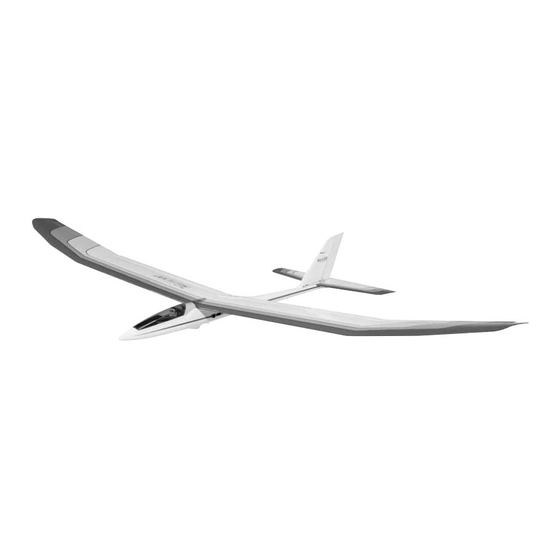GREAT PLANES Spirit 100 Manuel d'instruction - Page 16
Parcourez en ligne ou téléchargez le pdf Manuel d'instruction pour {nom_de_la_catégorie} GREAT PLANES Spirit 100. GREAT PLANES Spirit 100 20 pages.

❏
5. Mount the 6-32 tow hook to the fuse with the 6-32 nut
to lock it in place.
Apply the Decals
1. Use scissors or a sharp hobby knife to cut the decals from
the sheet.
2. Be certain the model is clean and free from oily fingerprints
and dust. Prepare a dishpan or small bucket with a mixture of
liquid dish soap and warm water–about one teaspoon of
soap per gallon of water. Submerse the decal in the soap and
water and peel off the paper backing. NOTE: Even though
the decals have a "sticky-back" and are not the water transfer
type, submersing them in soap and water allows accurate
positioning and reduces air bubbles underneath.
3. Position decal on the model where desired. Holding the
decal down, use a paper towel to wipe most of the water away.
4. Use a piece of soft balsa or something similar to squeegee
remaining water from under the decal. Apply the rest of the
decals the same way.
GET THE MODEL READY TO FLY
Check the Control Directions
❏
1. Turn on the transmitter and receiver and center the
trims. If necessary, remove the servo arms from the servos
and reposition them so they are centered. Reinstall the
screws that hold on the servo arms.
❏
2. With the transmitter and receiver still on, check all the
control surfaces to see if they are centered. If necessary, adjust
the clevises on the pushrods to center the control surfaces.
4-CHANNEL RADIO SETUP
(STANDARD MODE 2)
4-CHANNEL
TRANSMITTER
ELEVATOR MOVES UP
4-CHANNEL
TRANSMITTER
RIGHT AILERON MOVES UP
LEFT AILERON MOVES DOWN
❏
3. Make certain that the control surfaces respond in the
correct direction as shown in the diagram. If any of the
controls respond in the wrong direction, use the servo
reversing in the transmitter to reverse the servos connected
to those controls. Be certain the control surfaces have
remained centered. Adjust if necessary.
Set the Control Throws
Use a Great Planes AccuThrow (or ruler) to accurately measure
and set the control throw of each control surface as indicated in
the chart that follows. If your radio does not have dual rates, we
recommend setting the throws at the high rate setting.
These are the recommended control surface throws:
High Rate
ELEVATOR:
5/8" [16mm] up
5/8" [16mm] down
RUDDER:
1-1/2" [38mm] right 1" [25mm] right
1-1/2" [38mm] left
AILERONS:
3/4" [19mm] up
3/4" [19mm] down
Full
FLAPS:
2" [50mm]
SPOILERS:
2-1/4" [57mm]
IMPORTANT: The Spirit 100 ARF has been extensively
flown and tested to arrive at the throws at which it flies
best. Flying your model at these throws will provide you
with the greatest chance for successful first flights. If, after
you have become accustomed to the way the Spirit 100
ARF flies, you would like to change the throws to suit your
taste, that is fine. However, too much control throw could
make the model difficult to control, so remember, "more is
not always better."
16
4-CHANNEL
TRANSMITTER
RUDDER MOVES RIGHT
4-CHANNEL
TRANSMITTER
FLAPS NEUTRAL
(STICK DOWN, FULL FLAPS)
Low Rate
1/2" [13mm] up
1/2" [13mm] down
1" [25mm] left
3/8" [9.5mm] up
3/8" [9.5mm] down
Half
1" [25mm]
1" [25mm]
